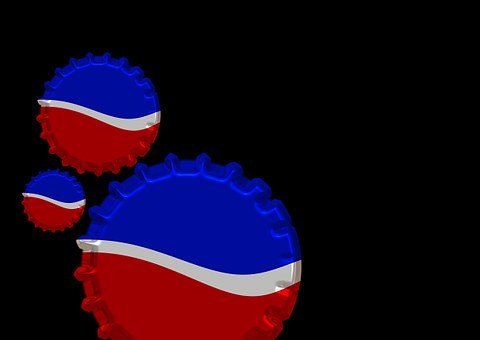高一英语第三单元知识点

篇1:高一英语第三单元知识点
ⅠLangu; age points
bring up:
1)培养,抚养,教育
She brought up her children to be considerate of others. 她教育孩子要关心别人。
He was brought up by his aunt. 他被姑姑抚养大。
2)提出
We decided to bring up the problem at the next meeting.
我们决定在下次会议上提出这个问题。
3) 吐出,呕吐
He brought up his dinner. 他把晚餐吃得东西都吐了。
He fell ill and brought up his breakfast. 她生病了,把吃的早饭都吐了出来。
2. scene n.
1) 一场,一镜头
He added a new scene at the beginning. 在开头他又加了一场戏。
We missed the first few scenes of the film. 我们错过了这场电影开始的几个镜头。
2) 景色,风景,场面
The night scene in Shanghai is quite beautiful. 上海的夜景非常美。
3) (发生事件的)现场,地点
They rushed to the scene of the traffic accident. 他们火速赶到车祸的现场。
比较:scene , scenery 和view
(1) scene 指都市景观或室内陈设,还可以指舞台场面或部分布景,可数名词。
(2) scenery 指山河湖海等自然景观,也可以指舞台全部,是不可数名词。
(3) view 指从远处或高处看到的风景。
The view from the top of the hill is wonderful. 从山顶上眺望,风景很美。
Ex:I saw a happy of children playing in the park.
A. scene B. view C. scenery D. case
3. bet
n. 1) make a bet 打赌 2) (金钱等)赌注 win/lose a bet 打赌赢/输了
I can make a bet with you that you must pass the exam. 我可以跟你打赌你一定能通过考试。
Let’s make a bet on the next election. 咱们赌一赌下次的选举把。
I make a bet that we would win the football match. 我打赌我们会赢那场足球赛
v. 1) 打赌,赌博
Mrs. Black spent all her money betting on horses. 布莱克夫人把她所有的钱都花在了赌马上。
4. Permit me to lead the way, sir.
permit
1)vt. 许可,允许,容许
~ doing / n./ pron. 准许做某事
~ sb. to do sth 准许sb.做某事
We don’t permit making noise here. 我们不允许在这里吵闹。
The teacher didn’t permit us to swim in this river. 老师不允许我们在这条河里游泳。
2)vi (事物)允许,成为可能
I will go to meet you if time permits. 如果时间允许的话,我们会去见你。
We’ll start tomorrow, weather permitting. 天气允许的话,我们明天出发。
3)n. 许可证,通行证
Please show your drive permit. 清出示你的驾照。
Ex: The teacher doesn’t permit in class.
A. smoke B. to smoke C. smoking D. to have a smoke
5. go ahead vi 词组
1) 前进; (工作等)推进
Thing are going ahead quite well. 事情进展地很顺利。
After they settled the problem, they were going ahead fast.
那个问题解决后,他们推进的速度加快了。
2)(催促对方)先请!请!
You go ahead and I’ll follow. I’m not quite ready. 你先走,我随后到。我还未完全准备好。
3)该词组亦可作表示意见的肯定答语,译为“干吧!请吧,说吧,走,行等”
“Would you mind if I opened the window?” “No. Go ahead.”
我打开窗子你介意吗? 不介意,去开吧。
“May I use your phone?” “Yes, go ahead.”
我能用一下你的电话吗? 行啊。
Ex:— I wonder if I could possible use your car for tonight?
— . I’m not using it anyhow.
A. Sure, go ahead B. I don’t know C. Yes, indeed D. I don’t care
6. by accident = by chance 偶然地,意外地
Last time, I ran across her by accident /by chance. 上次我偶然碰到她。
on purpose 故意的
I think she lost the key on purpose. 我认为她是故意遗失钥匙。
7. Well, towards nightfall I found myself carried out to sea by a strong wind.
到黄昏时,我发现自己被一阵大风卷到了大海里。
found myself carried out to sea 反身代词myself 作found 的宾语;过去分词carried作宾语补足语。属于 find + sb. / sth..+ done 的结构。
find + 复合宾语结构
1) find + 宾语 + adj. + to do
The boy found the novel difficult to read. 这个男孩发现这本小说很难读懂。
2) find + it + adj.+ to do 在此句型中it 代替其后的不定式作形式宾语。
I found it hard to get along with his brother. 我发现很难同他的兄弟相处。
3)find + 宾语+adj./adv./过去分词/ 现在分词/介词短语
I found the job boring. 我发现这项工作令人厌烦。
I found him in his own room. 我发现他在自己的房间里。
He hurried to the store, only to find the door closed. 他匆忙赶到商店,发现门关着。
4)find oneself doing sth./ at / in 意识到自己非本意地干某事或处于某种境地
Peter,who was usually shy, found himself talking to the girls.
彼得一向腼腆,突然意识到自己在跟女孩们说话。
After wandering around, we found ourselves back at the hotel.
四处闲逛之后,我们不自觉地回到旅馆。
Ex:When we returned from our holidays, we found everything .What while we were away?
A. changed; had happened B. changing; happened
C. had changed; has happened D. was changed; happened
8. fault
1) n. 过错,缺点,故障,毛病
Her greatest fault is that she talks too much. 她大的的缺点是话太多。
2) find fault with 挑剔
He is always finding fault with me. 他总是对我百般挑剔。
3) vt. 对…挑毛病
It was impossible to fault her performance. 她的演出无懈可击。
faultless adj. 无错的,完美的 faulty adj. 有缺点的,不完整的
9. The next morning I’d just about given myself up for lost when I was spotted by a ship.
第二天早上我正感到绝望的时候一艘船发现了我。
1) about 为副词,同almost。 这里just about=almost
The apples are just about ripe now. 苹果差不多都熟了。
2) give oneself up 放弃,绝望 give oneself up for… 因…绝望
3) lost 前省去了being
4) when 此句中的when为并列连词,译为“正在这时(突然)”,常用于以下句型:
be just to do …when…
be on the point of doing sth…when…
be doing…when…
be about to do …. when
I was watching TV when a boy rushed into the door.
我正在看电视的时候(突然)有个孩子冲进来。
I was just about to leave when it began to rain. 我正要离开的时候,这时(突然)下起雨来。
She was on the point of leaving when I arrived. 她正要离开,这时我来了。
本句句型为:…had done…when…已经…这时/突然…
I had gone to bed when somebody knocked at my door. 我已经上睡觉,这时有人敲门。
5)spot
n.(1)斑点;污点
How did you get spot that on your face? 你脸上的斑点是怎么弄上去的?
He is a man without a spot on his character. 他是个没有任何污点的人。
(2)地点,场所
The spot where he was murdered has been found. 他被谋杀的地点已被找到。
This is the very spot where the accident happened. 这就是事故发生的地点。
(3)滴
Did you feel a few spots of rain? 下了几滴雨,你感觉到了吗?
vt. 认出,发现
The thief was spotted by the police as he was entering the bank.
那个小偷进入银行时便被警察发现。
I easily spotted him in the crowd because he was very tall.
因为他个子非常高,我在人群中很容易就认出了他。
10. The fact is that I earned my passage by working as an unpaid hand, which accounts for my appearance.
account
n.1)账户,账单 keep the account 记账 send in an account 报账
2)账户,户头 There are only 50 dollars in his account. 在他的账户上仅有50美元。
open an account 开户
3)记录,报告,叙述(report, description)
Here is a brief account of the meeting. 这是对会议的简短记录。
Keep an account of your daily activities. 把你每天的活动都记录下来。
phrase:of great / small / no / account 很重要/不大重要/不重要
He is a man of no account. 他是个无足轻重的人。
She was a scientist of great account. 她是个非常重要的科学家。
on account of = because of 由于,因为
He retired on account of poor health. 由于身体不好他退休了。
on no account 不论什么理由都不…(放在句首,句子倒装)
On no account will I do it. 无论什么理由我都不做。
v.account for
1)对…做出解释,说明原因
How do you account for all the accidents in series? 你如何解释这接二连三发生的事故呢?
He could not account for his absence from school. 他不能对自己的上课缺席做出解释。
2)导致
Bad weather accounted for the long delay. 长期的延缓是由坏天气导致的。
Ex:She has been working hard day and night, which, of course, her pale face.
A. accounts for B. stands for C. goes for D. answer for
11. I went to the American embassy to seek help, but... 我去美国大使馆求助,但是…
seek (sought, sought)vt.& vi.
1) 寻找,追求
They sought shelter from the rain. 他们找地方躲雨。
He found it worthless to seek fame. 他发现追求名声是不值钱得的。
2) 请求,征求,求教
You should seek advice from your lawyer on this matter. 在这件事上你应征求你律师的意见。
3)企图,试图
They sought to punish him for his crime but he escaped.
他们试图惩罚他的罪行,但他却逃跑了。
phrase:seek one’s / a fortune 追求财富,碰运气
seek for /after 寻找,追求 She sought for a solution to the problem.
seek one’s advice 征求某人的意见
Ex:In the early 1920s, thousands of people went to Australia to their fortune.
A. seek B. take C. develop D. undertake
12. Patience, Mr. Adams. 耐心点,亚当斯先生。
patience n. 忍耐,以利,耐心
lose one’s / be out of patience with… 对…失去耐心
adj. patient 耐心的,能容忍的
be patient with sb./sth. 对…有耐心
You should be more patient with other. 你应该多容忍他人一些。
13. on the contrary
contrary adj. 相反的,相对的,逆向的,对抗的
They walked in contrary directions. 他们各往相反的方向走去。
on the contrary 正相反,反之
You didn’t bother me. On the contrary, I like your company.
你没有打扰我,相反的是,我喜欢由你做伴。
be contrary to… 与…相反 My opinion is contrary to yours. 我的看法与你相反。
Ex:— You seem to show interest in cooking.
— What? , I’m getting tired of it.
A. on the contrary B. To the contrary C. On the other hand D. Not at all
*马克 吐温的格言警句
1. Late come of true facts, be like suddenly horseshoe, ah of shooting the head, pain!
迟来的真相,就像突然击中头部的马蹄铁,哎,痛啊!
2. The man who does not read books has no advantage over the man that cannot read them.
那些有好书却不读的人不比无法读到这些书的人拥有任何优势。
3. Tell the truth forever, such of words you need not recorded you to once say some what.
永远说实话,这样的话你就不用去记你曾经说过些什么。
4. Rather shut up don't talk, don't be eager to expressing oneself, either.
宁愿闭口不说话,也不要急于表现自己。
5. Comity is such a kind of intense emotion of sanctity is thus sweet, firm and honest.
友谊是如此圣洁的一种激情,是如此甜蜜、牢固和忠诚。
6. Everyone is a moon, and has a dark side which he never shows to anybody
每个人就像一轮月亮,不愿意将黑暗的一面让别人看到。
7. As long as had ignorance and self-confidence, you can succeed by all means.
只要具备了无知和自信,你就必然能成功。
Period 3 Using Language (The Million Pound Bank-Note)
Step 1:First Reading
Read through the text quickly and then complete the True or False questions.
1. The owner looked down upon Henry when he noticed Henry’s appearance. T
2. Henry asked for more of the same food because he is an American who likes to eat a lot. F
3. When Henry saw the million pound bank-note, he was happy and proud of it. F
4. The owner didn’t believe that the bank-note was real and he asked Henry to get out of the restaurant. F
Step 2:Careful Reading
Read the passage and answer the following questions
1. What did the hostess feel when Henry came into the restaurant? How do you know?
She felt very impatient and looked down upon Henry because of his poor appearance.
“Why, look at him, he eats like a wolf.”
2. How about Henry’s feeling after he finished eating and asked another one?
He felt satisfied and full. That was a wonderful meal.
3. Why were the owner and hostess shocked when they saw the million pound bank-note in Henry’ hand?
Because they never thought that the bank-note belonged to such a person in rags.
4. What made them trust that the bank-note was genuine?
Mr. Clemens’ words. He said “Two notes in this amount have been issued by the Bank of England this year. No thief would want that to happen.”
5. What can we learn from this story?
We shouldn’t judge people by appearance.
Money is everything in the capitalist society.
Step 3: Retell the story by filling the following blanks
__Hunger_ forced him to go into a restaurant. The owner and the waiters served him in a _rude _ manner. However, when they saw the note, their __attitude_ to Henry changed greatly. It was very common to _judge_ a stranger by their clothes in the capitalist countries.
Step 4: Language points
1. That one’s reserved.
reserve v.
1) book 预定 to ~ a seat on the plane
We must reserve / book a room at the hotel.
2) set aside 预留,保留 ~ sth (for sb./sth.)
These seats are reserved for special guests. 这些座位是留给贵宾的。
Reserve your strength for the climb. 留点力气准备登山吧。
adj. reserved 预定的,保留的 ~ seats 预定的座位
2. I’m afraid it’ll cost a large amount of money.
amount 1) 总额,总计,总数 What is the amount of the bill? 账单上的金额总计多少?
2)a large / small amount of…大量的/ 少量的
Large amount of money were spent on the bridge. 那座桥耗费了大量资金。
区别:a large amount of & a large number of
a large amount of 与不可数名词连用,修饰用量计算的东西。
It will take us a large amount of money and time to finish the work.
a large number of 修饰可数名词,修饰用数计算的东西。
I have a large number of things to do, so I can’t go to see a film with you.
Ex: A hurricane hit the city last night and a large of damage was in a very short time.
A. number B. deal C. amount D. sum
3. Well, we have to take a chance.
take a chance /take chances 碰运气;投机;冒险一次
You should never take a chance when driving a car. 开车时决不应冒险。
We will take a chance to go across the river. 我们要冒险度过这条河。
by chance 偶然 by any chance 万一,也许 by some chance 由于偶然的机会
chances are that… 很可能…,大概是…
Chances are that he has already arrived. 他很可能已经到了。
4. manner n.
1)方式,方法 I like ducks cooked in a Chinese manner. 我喜欢中式烤鸭。
I don’t like the manner in which she speaks. 我不喜欢她说话的方式。
2)态度,举止
He has a rude manner, so I don’t like to talk to him. 我不喜欢和他交谈,他态度很不礼貌。
He spoke in such a manner that they got angry. 他以这样的态度讲话,把他们惹生气了。
3)礼貌(常用复数形式)
People don’t like a person with bad manners. 人们不喜欢没有礼貌的人。
It’s bad manners to stare at people. 盯着别人看是不礼貌的。
6. indeed adv.
1) (表示赞同对方) 的确;实在
— Are you pleased at your son’s success? — Yes, indeed.
2) (用以加强very等词的语气)确实,存在
I was indeed very glad to hear the news. 我听到这条消息的确非常高兴。
Thank you very much indeed. 实在太感谢你了。
篇2:高一英语第三单元知识点
词汇
【单元重点短语】
1.work out_________________
2.fall out
3..get into shape________________
4.go on a diet_______________
5.side effect
6.be ashamed of______________
牛津译林版高一英语词汇:Unit 3 Looking good feeling good
语言点
1. be dying to do/ for =have a strong desire to do =be anxious/eager to do/ for 急切去做…;渴望去做.....
I’m dying for something to eat.我非常想吃东西
I’m dying for a drink at the moment. 此刻我非常想喝点东西
I’m dying to see you.我非常想见你
She’s dying to know where you have been.她迫切的想要知道你去哪了

篇3:高一英语第三单元知识点
预习和检测
翻译下列词组
1. 在圣诞节期间_______ (at Christmas)
2. 爆炸,发脾气_______ (blow up)
3. 容忍,忍受 _____ (put up with)
4. 关(水、煤气、电灯等), 拐弯,令人讨厌_____ (turn off)
5. 离开某地前往某地_____(leave sp. for sp.)
6. 超越某人______(leave sb behind)
7. 实施,履行,完成_______(carry out)
8. 使……出丑_____ (put sb down)
9.继续做;经营______ (carry on doing sth.)
10.做礼拜_______ (go to church)
知识探究
一.重点单词
1. awake adj.
1) 醒着的
He has lain awake all night, thinking of them.
他躺着一夜没睡着,想着他们。
I lay awake in his bed.
我醒着躺在床上。
2) 认识到的,意识到的[(+to)]
They are fully awake to the dangers of the situation.
他们充分意识到局势的危险。
3) 警惕的
We must stay awake in their struggle against terrorists.
我们必须在与反恐怖分子的斗争中始终保持警惕。
拓展:
awake vt.
1) 唤醒,使醒过来
The noise awoke me.
噪音把我惊醒了。
2)使觉醒;使意识到 (+to)
He tried to awake us to a sense of duty.
他试图使我们认识到自己的责任。
3) 唤起,激起
Nothing can awake his interest in English.
什么都无法激起他对这门英语学科的兴趣。
awake vi.
1) 醒来
I awoke from a sound sleep.
我从酣睡中醒来。
2) 觉醒;意识到 (+to)
We must awake to our responsibilities.
我们一定要认识到自己的职责。
3) 被唤起,被激起
Old memories awoke in me when I saw the picture.
我看到这张照片时件件往事涌上心头。
awake 是表语形容词,在句中一般只作表语或后置定语。用法相同的词还有:
alone; alike ;aware: asleep 等。
与awake 的常用搭配有:
(1) be awake to 注意到,意识到
(2) be awake 醒着
(3) wide awake 完全醒着;没有睡意
(4) keep sb. awake 让某人无法入睡
运用:翻译
(1)是我们让她意识到错误的时候了。
答案:It's time we made her awake to her mistakes.
(2)这里的噪音是我无法入睡。
答案: The noise here made me awake.
(3)昨晚我在半夜还毫无睡意。
答案:I was wide awake at midnight yesterday.
2. event n. 大事,事件;项目
Please collect the chief events of that year.
请收集一下那年的主要大事。
拓展:event, accident, incident 与 affair的区别
event 一般指发生的或历的大事件,也可以指比赛的项目。
incident 一般指不重要的小事或政治上的事件。
accident 指偶然发生,出乎意料的事故。
affair 是个普通名词,可以表示:大事,小事,政治事件,家务小事。
运用: 用event, accident, incident 与 affair填空
1) The report deals with the most important____ of .
答案:events
2) Ten children were hurt in the car____.
答案:accident
3) After they had been punished, nobody mentioned the ____ again.
答案: incident
4) He isn't prepared to discuss his financial ______ with press.
答案: affairs
3. swallow vt.
1) 吞下,咽下
I swallowed the pills with a cup of water.
我用一杯水吞下了这些药丸。
2)淹没,吞没;吞并 (+up)
The waves swallowed up his little boat yesterday.
昨天波浪吞没了他的小船。
3) 耗尽,用尽 (+up)
The increase in food costs swallowed up our pay increase.
食物花费的增加超出了我们的工资增长。
4.)轻信;轻易接受
The girl is naive and would swallow anything you tell her.
那女孩很天真,你跟她讲什么她都相信。
5)忍受
The man swallowed the insults and kept on working.
那人忍受侮辱继续努力。
6)压制,抑制
I swallowed her displeasure and smiled.
我抑制自己的不快,强颜欢笑。
7) 取消(前言)
I had to swallow my words for this reason.
由于这个我不得不取消前言。
拓展:swallow vi. 吞下;咽下
She couldn't swallow because of a sore throat.
她因嗓子疼而不能吞咽。
n. 1) 吞, 咽
I took the medicine at one swallow.
我一口吞下这药。
2) 一次吞咽之物 (+of)
The girl took a long swallow of wine.
那女孩喝了一大口酒。
swallow 燕子[C]
One swallow does not make a summer.
一燕不成夏。
运用:用适当的介词填空
(1) Before leaving the hotel, he took a swallow ___ beer.
答案: of
(2) Buying the house swallowed ___ our savings.
答案: up二.重点词组
1. Which things do you think western people have at Christmas?
at Christmas在圣诞节期间
At Christmas people often go shopping in the big supermarket.
在圣诞节期间,人们经常到这个大超市购物。
拓展 :
(1)on Christmas eve 在圣诞前夜
(2) on Christmas Day 在圣诞当天
运用:选择填空
People in the west often spend much money buying things_______.
A. on Christmas Eve B. on Christmas Day C. at Christmas D. Christmas
答案:C at Christmas在圣诞节期间
on Christmas eve 在圣诞前夜
on Christmas Day 在圣诞当天
2.blow up 给……充气,给……打气
He is blowing up his tire. 他正在给轮胎打气。
拓展 :
blow up 还有“爆炸”“起,发生”“发脾气”“严厉责备某人”“夸大”之意。
The man was killed when the barrel of gun powder blew up.
当火药桶爆炸时,那名男子被炸死了。
A hurricane is blowing up.
飓风来了。
I am sorry I blew up at you.
很抱歉,我对你发脾气。
He blew her up for her carelessness.
他斥责她因她的粗心。
His influence was greatly blown up by the media.
媒体夸大了他的影响。
运用: 选择填空
The police station was _____by the terrorists.
A. blow up B. blown up C. blown down D. burnt down
答案:B blow up 有“爆炸”的意思。
3.carry on 继续,坚持,经营
carry on doing sth 相当于 go on doing sth
They carried on doing the work as if nothing had happened.
他们继续在工作,好像什么都没有发生。
拓展:
(1) carry on with 继续
(2) carry away 搬走,冲走,使失去理智成自制力
(3) carry out 实施,履行,完成,后常加plan, promise, order
(4) carry about /around 随身携带
运用: 选择填空
(1)--It’s a good plan, but who’s going to___ it?
---Tom, I think.
A. carry out B. go on C. take on D. get through
答案: A carry out 实施,履行,完成,后常加plan, promise, order等。
(2)They __doing the work despite the noise.
A. went on with B. carried on
C. came on D. set out
答案:B carry on doing sth 继续做某事。
4. put up
1) 建造
We put up a house by the river.
我们在河边建造了一间房子。
2)供给...住宿
We can put all of you up for the night.
我们可以安排你们所有人过夜。
拓展:含有put的短语有:
put off 推迟
The meeting has been put off.
put up
1) 搭建 put up a house
2) 抬高 put up the price of meat
3)提供食宿 put sb. up for the night
4)提出 put up a solution
put out
1)灭火Far water does not put out near fire.
远水救不了近火。
2) 生产 put out cars
3)关掉 put out the lights
put on 穿上;戴上
put down v.放下, 拒绝, 镇压, 削减, 记下, 制止, 取缔
build up 和put up都有建立建设的意思.
build up 可以指建立抽象的事物也可以指建立具体的事物.
build up confidence in yourself建立自信心confidence就是抽象的事物。
build up a skyscraper here 在这里建设一个摩天大楼。
put up 多指建设盖起搭起一个具体的事物。
put sb down 使……出丑
put sb off 取消(与某人的见面)安排
put sb on 让某人听电话
put up with sb 容忍,忍受
set up home 安家落户
运用:翻译下列句子
(1)我们得把婚礼延期到九月举行.
答案: We've had to put our wedding off until September.
(2)把玩具玩儿完了以后放进柜子里去.
答案:Put your toys away in the cupboard, when you've finished playing.
(3)他大概喝了半瓶威士忌酒.
答案:He must have put away half a bottle of whisky last night.
(4)以招待你过夜.
答案:. We can put you up for the night.
选择填空
(1)A New cinema___ where used to be a temple.
A. has put up B. has been put up
C. put up D. has been putting up
答案:B put up “建造”的意思,根据句意应该用被动。
(2)______ in 1636, Harvard is one of the most famous universities in the USA.
A. Being founded B. It was founded
C. Founded D. Founding
答案:C 过去分词短语作状语,放于句首。相当于Because it was founded in 1636,
5.turn off the lights关掉电灯
Please turn off the lights because I can't sleep with lights on.
请关掉电灯,因为灯开着我睡不着。
拓展:
(1)turn off 关(水、煤气、电灯等)
(2)turn off 拐弯,令人讨厌
(3)turn on 开水、煤气、电灯,它还有“攻击”之意
运用:选择填空
The dog suddenly ______me and bite me on the leg.
A. turned on B. turn to C. turned off D. turn off
答案:A turn on 开水、煤气、电灯,它还有“攻击”之意。
6. leave sth for sb 为某人留下某物
leave sth for sb 相当于leave sb sth
Please leave the cake for him.
请把这块蛋糕留给他。
拓展:
(1) leave sp for sp 离开某地前往某地
(2) leave sth to/with sb 把某物交托给某人
(3) leave sth aside 不考虑某人,将某事放置一边
(4) leave sb behind 超越某人
(5) leave sth off 不把……列入,漏掉某物
运用:选择填空
He is ____Beijing _____Shanghai tomorrow.
A. leave; for B. leaving; for C. leave; to D. leaving; to
答案:B leave sp for sp 离开某地前往某地。
三. 重点句型
1. while conj.
拓展:
(1)表对此的“而,却”
He likes music, while his brother likes sports.
(2)表示“尽管,虽然”相当于though/although
While they are twins, they have nothing in common.
(3)表时间 “当……时候”(从句的谓语动用延续性动词)
I was doing my homework while my mother was watching TV.
(4)表条件的“只要”=as long as 注意:常用在肯定句中。
While there is water, there is life.
运用:选择填空
(1)____ modeling business is by no means easy to get into,
the good model will always be in need.
A. while B. when C. As D. If
答案:A while 表示“尽管,虽然”相当于though/although
(2)--I am going to the post office.
--_____you are there, you can get me some stamps.
A. As B. While C. Because D .If
答案:B While表示“当……时候”,从句的谓语动用延续性动词。
2.with的复合结构
With +n +形容词/副词/介词短语/不定式/现在分词/过去分词
例如:
1. He likes to sleep with the windows closed.
(作状语,形容词作宾补)
2. He is standing against the wall, with his head down.
(作状语,副词作宾补)
3. She came in with a book in her hand.
(作状语,介词短语作宾补)
4. With a local guide leading the way, we got there easily
(作状语,现在分词短语作宾补)
5. With the problem solved, we went on smoothly.
(作状语,过去分词作宾补)
6. With her husband to help her, she will work it out.
(作状语,不定式短语作宾补)
7. The girl with a bag on her back went happily to school.
(作定语,介词短语作宾补)
拓展:运用这一结构必须注意以下几点:
(1) with结构在句子中作定语或状语。
(2) with 结构中一定不用谓语动词形式,因为它不是句子。
(3) with结构中的副词是指那些无形容词形成的副词,如on,down,in,out,up,away等。
运用:选择填空
With a lot of difficult problems______ ,the newly-elected president is having a hard time.
A. settled B. settling C. to settle D. being settled
答案:A 用过去分词表示动作已经完成。

篇4:高一英语第三单元知识点
一.重点单词
1.include v.包含,包括
Six students have been to Japan, including me.
六个学生曾去过日本,包括我。
拓展:
(1)contain 指作为组成部分被包含在内,是内容物的包括。
The drink contains alcohol.
这种饮料里含有酒精。
(2)include指作为整体的一部分包括进去,是范围的包括。
His duty includes answering phones.
他的责任包括接电话。
(3) including +名词/代词 意思为 “包括...在内”。
(4) 名词/代词+ included 意思为 “...被包括在内”。
运用:选择填空
(1)Five students, ____Tom, passed the exam the other day.
A. included B. including C. contain D. contained
答案:B including +名词/代词 意思为 “包括...在内”,
名词/代词+ included 意思为 “...被包括在内”。Tom included 也对。
(2) The boss has______ the broken cup in your bill.
A. including B. included C. contained D. containing
答案:B include指作为整体的一部分包括进去,是范围的包括。
2.journey n.旅行
拓展:
trip , tour, travel与journey的区别
journey主要指路地长途旅行, trip常指短距离的旅行,远足。
tour常指观光、考察等的环游旅行,travel指短距离或国外旅行
运用:选择填空
He likes __ to France.
A. journey B. traveling C. tour D. trip
答案:B like to do/doing sth
3. power n.
1) 权,政权;权力;势力 (+over)
2) 职权;权限[C][U][+to-v]
The president has the power to vote down bills.
总统有权否决议案。
3) 能力,本领 (+of)
She lost her power of speech.
她失去了说话的能力。
4)力;动力,电力
The shortage of power dimmed the streets.
由于电力不足,街道昏暗。
5) (有时大写)有权力的人;有影响的机构;强国,大国
The world powers will meet in Paris this summer.
今夏世界上的大国将在巴黎聚会。
拓展:
powerful adj. 有影响力的,权力大的 powerfully adv.有权势地
(1) come into power 上台、执政(强调动作)
(2) the power to do sth =the power of doing sth 做……的能力
类似用法的词还有way, chance等。
(3) out of/beyond one's power 某人不能胜任的;能力所不及
(4) in power 执政,当权(强调状态)
(5) have power over sb. 能支配某人
运用:选择填空
When Hitler came into___, he found the doors of the study closed to him.
A. light B. power C. office D. being
答案:B come into power 上台、执政。
4.accept v.接受、应允、收受 答应
拓展:
accept强调自愿主动地接受,receive强调被动接受 或收到
accept作及物动词,还表示承认,相信 ,接纳。
Mary received a gift from a friend of hers, but she didn't accept it.
I can't accept my new boss.
运用:选择填空
He did____ the gift, but he didn’t____ it.
A. accept; receive B. receive; accept
C. accepted; receive. D. receive; accepted
答案: D accept强调自愿主动地接受,receive强调被动接受 或收到。
5.decorate vt装饰;布置
He decorated the room with flowers.
他用鲜花装饰了那间房子。
拓展:
(1)decorate sth with sth 用某物装点某物
(2)decoration n 装潢,装饰品
运用: 翻译
他为了给我装修房间买了许多装饰品给我。
答案: He bought me a lot of decorations to decorate my rooms.
6.darkness 黑暗
The whole country was in thick darkness when the war broke out.
当战争爆发时,整个国家都笼罩在深深的黑暗中。
拓展:
darkness与dark的区别,darkness常指一时的黑暗。dark表示经常
的黑暗或长时间的黑暗,用时需加the。
Keep sb in the dark 为某人保密
Keep sth in the dark 暗中做事
运用:选择填空
lt was ________before we got there.
A. lights B. moon C. bright D. dark
答案: D dark表示经常的黑暗或长时间的黑暗。
7. occasion n.
1) 场合,时刻;重大活动,盛典[C]
2) 时机,机会
I seized the occasion to invite her home for dinner.
我抓住机会邀请她回家里吃饭。
3)起因,近因 (+of)
His departure was the occasion of much sadness.
他的离别是令人十分悲伤的起因。
4) 理由;需要[U] (+for/+to-v)
He has no occasion to buy another bike.
他没有必要再买一辆自行车。
拓展:occasion vt.
引起;惹起
Li Ming rude behavior occasioned a quarrel.
李明的粗鲁行为引起了一场争吵。
与occasion搭配的相关词组:
by occasion of 由于,因为;
on occasion(s) 偶尔,间或,有时;
on the occasion of 在…之际;
on this occasion 这一次
on one occasion 曾经,有一个时候
运用:完成句子
(1) 由于粗心她没有通过考试。
He failed the exam ____ occasion ___ his carelessness.
答案: by; of
(2) 你没有理由卖掉这房子。
You have no occasion ___ ___ the house.
答案:to; sell
8. contribute v.
拓展:(1)捐献,贡献,增加
The terrible weather contributed to our difficulty .
恶劣的天气增加人们的困难。
(2)向……投稿
Li Lei often contributes to the magazine.
李雷经常给杂志投稿。
(3)contribution n.贡献,常用词组 make a contribution /contributions to
为……做贡献
They made great contributions to their motherland.
他为他的祖国作出了很大的贡献。
运用:选择填空
The rich man _________much money ___his hometown.
A.contributed; to B.contribute; to C.contibuted to; to D.contributes to; on
答案:A contribute ...to... 有“捐献,贡献,增加,向……投稿”之意。9. destroy vt.
1) 毁坏,破坏
A fire destroyed the house.
一场火毁坏了那座房屋。
2) 杀死,消灭
3)打破(希望、计划);使失败
What she said destroyed his last hope.
她说的话摧毁了他最后的希望。
拓展:damage ,ruin ,destroy 的hurt区别
(1)damage,destroy,ruin主要用于无生命的事物,
而hurt主要用于有生命的人或动物。
(2)damage 通常表示事物的价值或功能部分受损。如:
The ship was damaged in the bottom.
那条船的底部被损坏。
(3)destroy,ruin均表示事物全部被毁。如:
They destroy all of the two enemy warships
他们把2艘敌舰全部歼灭。
(4)hurt 有适用范围较广,可指人或动物因各种原因导致的疼痛或损伤。如:
Children are liable to get hurt when they play.
孩子们在玩耍时易受伤。
运用:翻译下列句子
(1)In crowded populations, poverty destroys the possibility of cleanliness.(George Bernard Shaw)
答案: 在人口拥挤的地方,贫困使清洁毫无可能。(乔治伯纳德肖)
(2)Too much money destroys as surely as too little.(John Simon)
答案:过多的钱和过少的钱一样会带来破坏作用。(约翰西蒙)
(3)The floods did a lot of damage to the crops.
答案:洪水使庄稼受到了很大损失。
10. serve vt.
1) 为...服务;为...服役
serve the people 为人民服务
2) 供应 (+with)
3) 侍候(顾客等);供应(饭菜);端上 (+to/with)
The girl served me a cup of coffee.
那女孩给我端上一杯咖啡。
4)任(职);服(刑);当(学徒) (+as/for/in)
She served two years in prison.
他坐过八年牢。
5)适合(特定用途或目的);对...有用;供...使用[+to-v]
My old bike serves me very well.
我那辆旧自行车对我很有用。
拓展:
serve vi.
1)服务;服役;供职;帮佣 (+in/on/under)
His father served in the navy during the FirstWorld War.
他的父亲在第一次世界大战期间在海军服役。
2)招待,侍候;上酒,端菜
Ann is serving at the table.
安在侍候进餐。
3)适用;有用;足够 (+for/as/+to-v)
A simple example will serve to prove my point.
一个简单的例子可以证明我的这一点。
运用:翻译下列句子
(1)必须教育孩子长大后为国家服务。
答案:Children must be educated to serve their country when they grow up.
(2)他的父亲坐过几年牢。
答案:His father served several years as a prisoner.
11. sticky adj.
粘的;涂有粘胶物质的;泥泞的
My son’s fingers are sticky with jam.
他的手沾了酱,粘糊糊的。
拓展:
sticky 当形容词还有:
1)(口)湿热的
The climate there is sticky.
那里的气候湿热。
2)(口)棘手的,麻烦的
The man put her a sticky position.
那个男的将她置于一个困难的境地。
3) (口)过于多情的,易感伤的
4) 不灵活的,易卡住的
5) sticky finger可以原来形容爱小偷小摸的人
Tom has sticky fingers
运用:翻译下列句子
那位爱小偷小摸的人非常喜欢吃糯米,因为他喜欢吃粘性食物。
答案:The man who has sticky fingers likes sticky rice, because he likes sticky food.
二.重点词组
1.drive away 赶走、驱赶
He drove the dog away.
他赶走了那条狗。
drive vt.
1) 驾驶(汽车等)
I don't know how to drive a car.
我不会开车。
2) 用车送(人)
I'll drive you to the airport.
我将会开车送你去机场。
3) 驱赶,赶走
He drove the sheep down the hill.
他把羊群往山下赶。
4)驱动(机器)
The machine is driven by electricity.
这机器用电力驱动。
5) 迫使;逼迫
They drove her to admit it.
他们逼迫她承认。
拓展:(1) drive off 驱逐,击退
We drove off the enemies.我们击退了敌人。
(2) drive sb mad 把某人逼疯了
Don't drive me mad. 别把我逼疯了。
运用:选择填空
The difficulty___ her mad.
A. makes B. drove C. lets D. goes
答案:B drive sb mad 意思是“ 把某人逼疯了”。2.take part in 参与,参加
Many students take part in our sports meeting every year.
每年都有许多学生参加运动会。
拓展:take part in,join in 与 join的区别:
(1) take part in意为“参加”,指参加群众性的活动,侧重于成为活动的主体,
有时可以与join in互换,但表示“参加会议”时多用take part in,take part in 后面不
带宾语时则不用in。
(2) join in 意为“加入”,“参与某种活动”,
后接名词或动词-ing形式,join sb in (doing)sth意为“参加某人的活动”,
join in多指参加正在进行的活动,也可单独使用,即 join sb。
(3) jon 指加入某一个团队或组织而成为其中的一员。
运用:选择填空
Will you___us ___her birthday?
A.join; in celebrating B. join in; celebrating
C. take part in; celebrating D. join; to celebrate
答案:A join sb in (doing)sth意为“参加某人的活动”。
3.put out v.扑灭
Please put out fire.
请把火扑灭。
put out 还有以下几种意思:
1) 伸出
It's dangerous to put out your hand now.
现在你把手伸出去是危险的。
2) 熄灭
Put out the fire before going to bed.
睡觉之前先熄掉炉火。
3) 出版
put out 与 go out 表示“熄灭”的区别:
put out (人)使火熄灭
I put out the fire.
我扑灭了火。
go out(火自己)熄灭
The fire has gone out.
火自己熄灭了。
拓展:
(1) put aside 忽视,不理会
(2) put through 完成,使成功
(3) put away把...放回原处,攒钱
(4) put up 表现,提出(意见等)
(5) put down 降落,着陆
(6) put off 推迟
运用:选择填空
The sports meeting must be____ because of the bad weather.
A. put off B. put C. put aside D. put on
答案:A put off 推迟 ,put aside 忽视,不理会 。
三.重点句型
1.be said to+v 据说
拓展:(1) be said to be/do 据说做某事
如: The book is said to be good.据说这是一本好书。
(2) be said to be doing 据说正在做某事
如: She is said to be working on a new novel. 据说她正在写一本新小说。
(3) be said to have done 据说已经做了某事
如:She is said to have written 3 novels.据说她已经写了三本小说。
运用:翻译下列句子
(1)据说他是班里为勤奋的学生。
答案:He is said to be the most hard-working in his class.
(2)据说她正在日本学习。
答案: She is said to be studying in Japan.
(3)据说他已写了三本小说。
答案: He is said to have written three novels.
2.while 当……时,在……时候
I was doing my homework while my mother was cooking.
当我在做作业时,妈妈在做饭。
拓展:有很多意思,可以用在许多从句中。
(1) 当……时,在……时候,和……同时,引导时间状语从句。
如: His sister was watching TV while Tom was doing his homework.
当汤姆正在做作业时,他姐姐正在看电视。
(2) 只要,引导条件状语从句。
如: I will go with you while he helps me.
只要他将帮我,我就将和你一起去。
(3) 虽然,尽管, 引导让步状语从句。
如: While he has many shortcomings, she still loves him.
尽管他有许多缺点,但她依然爱他。
(4) 表对此关系。
如: Kate likes music while her twin sister likes sports.
运用:翻译下列句子
(1) 他在看书时睡着了。
答案: He fell asleep while(he was) reading.
(2)有生命就有希望。
答案: While there is life ,there is hope.有
(3)尽管他昨天病了,但他还是去帮她了。
答案:While he was ill yesterday he went to help her.
(4)我喜欢数学,而我的兄弟却喜欢英语。
答案:I like math while my brother likes English.
四.长句辩析
1. Traditional moon cakes are usually made with....
拓展:
1)be made with 表示构成某一物品的主要原材料。
The cake is made with flour.
蛋糕主要是由面粉做成的。
2)be made of 和be made from 都有“由原材料制成”但后者表示某一物品由某材料制成后,
原材料已看不出。
运用:翻译下列句子
(1)有的鞋子是用布做的。
答案:Some shoes are made of cloth.
(2)纸是由木材做成的。
答案:The paper is made from wood.
(3)木材能被制成纸。
答案:Wood can be made into paper.
2. in the past, lanterns....
拓展:
(1)light的过去式和过去分词同分别是lit/lit 和lighted/lighted.
作谓语时,两者都可使用,但做定语时只能用lighted。如:
He lighted/lit the candle 他点燃了蜡烛。
(2)be decorated with 布置,装饰有
The hall is decoraterd with flowers
大厅里布置上了鲜花。
运用:改错
This is a lit cigarette.
答案:lit改为lighted



